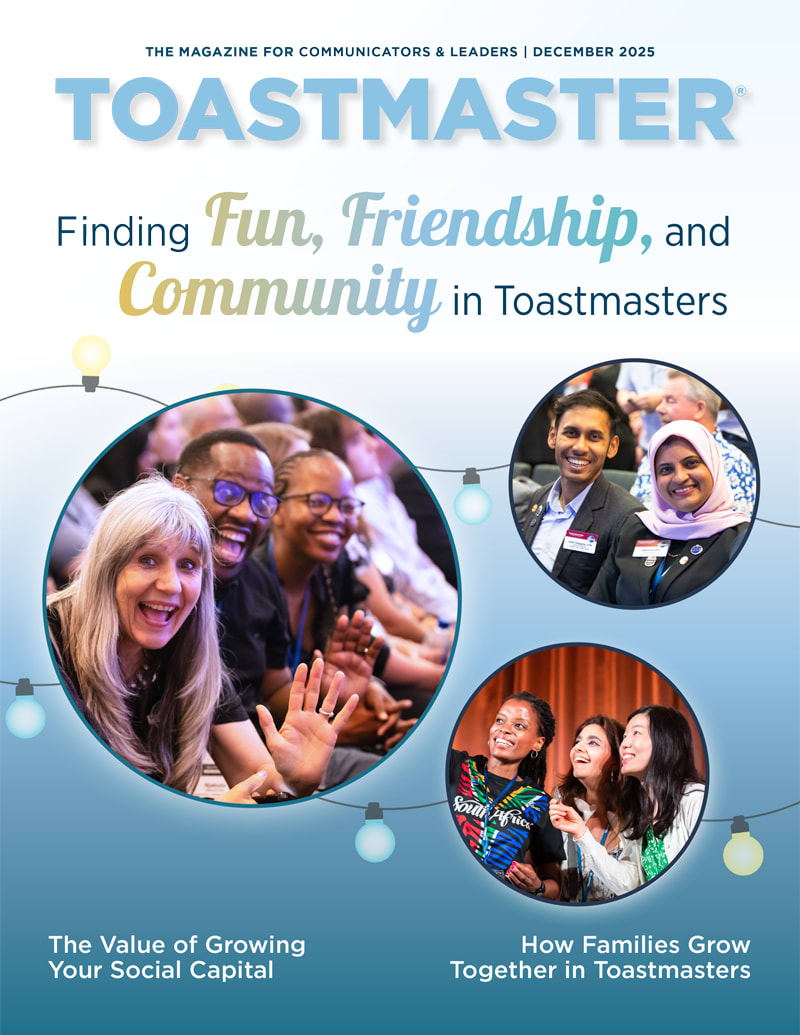The Organization for Autism Research (OAR) has awarded a 40,000 (USD) grant to researchers at California State University Fullerton “to investigate the impact of a community-based public speaking program for autistic individuals.” Specifically, a program like Toastmasters.
Researchers include Sasha Zeedyk, Ph.D., a professor of child and adolescent studies at the California State Fullerton campus, and Yasamin Bolourian, Ph.D., an independent researcher and specialist in autism from early elementary to postsecondary education. To help carry out the study, the researchers have partnered with longtime Toastmaster Judi Uttal, DTM, a member of The Contrarians club in Irvine, California, and a 10-year leader of the OCASG Gavel Club for autistic young people.
The viability of such a study began to shape when Uttal invited Zeedyk to an OCASG club meeting.
“One meeting was all it took,” says Zeedyk. “I knew immediately I wanted to understand the efficacy of Toastmasters for people on the spectrum. The members were so engaged. They seemed genuinely happy to be sharing their Saturday morning with each other. The speeches were remarkable, and the formal structure of the meeting seemed so appropriate for autistic people, who tend to thrive in predictable environments.”
In the first year of the study, Zeedyk and Bolourian will conduct interviews and focus on gaining a comprehensive understanding of whether, for whom, and under what circumstances Toastmasters is a meaningful program for autistic participants. The two will use the findings to identify potential program adaptations, particularly Speechcraft. In the second year of the grant, the researchers will run a pilot study to evaluate the effectiveness of the adapted program for autistic people.
Zeedyk says this study is important because it will include autistic individuals in the creation, implementation, and evaluation of the program. Previous programs have often relied on reports from caregivers and have encouraged autistic individuals to interact socially as if they did not have autism. This phenomenon, known as “camouflaging,” causes high stress and anxiety for these individuals. Zeekdyk and Bolourian hope to build a program that encourages autistic participants to be their true selves.
Bolourian says the study will be unique because Toastmasters is unique. “Toastmasters provides structure such as a weekly format, while also allowing for individual [speech] choices,” she says.
The global reach and accessibility of Toastmasters is also a key element for Bolourian. “Toastmasters is a well-established and widely available community-based program with some 280,000 members worldwide. The broad reach of the organization demonstrates the potential for our adapted program to easily reach across communities,” she says.
Uttal and the OCASG club are looking forward to being part of the study. “I’m very excited and can’t wait to help with the research,” says Uttal.
Editor’s Note: The researchers welcome hearing from current or former Toastmasters on the autism spectrum. Contact Sasha Zeedyk, Ph.D., at szeedyk@fullerton.edu.



 Previous
Previous
 Previous Article
Previous Article